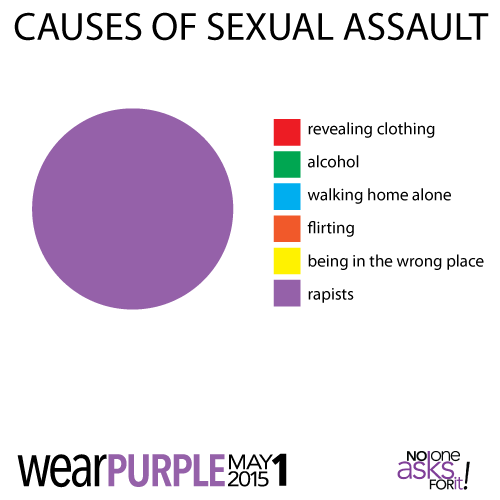In 80 percent of sexual assaults, the perpetrator is someone the survivor knew and trusted. This can lead to self-doubt, questioning of judgment and self-blame by the survivor.
By Doreen Nicoll
Published May 04, 2015
This is the third in a series of articles for Sexual Assault Prevention Month. This series of articles addresses the issue of sexual assault. The material might be upsetting to some readers. Please take the necessary precautions and have a plan of self-care in place.
A woman is sexually assaulted every 17 minutes in Canada (Canadian Advisory Council on the Status of Women, 1985). Each woman's experience with sexual assault is unique.
Women who are sexually assaulted may not have visible injuries. It's still an assault and it is a crime.

Causes of sexual assault
In 80 percent of assaults, the perpetrator is someone the survivor knew and trusted. This can lead to self-doubt, questioning of judgment and self-blame by the survivor.
Women may also blame themselves when drugs or alcohol were involved. Section 273.1 of the Criminal Code of Canada states that it's a crime when "the complainant is incapable of consenting to the activity." This means it's rape if the woman is impaired by alcohol or drugs, unconscious, or sleeping.
Responses to non-consensual sexual touching and rape include anger, mistrust, sadness, and self-blame. However, the way these emotions are experienced and expressed differ due to the individual nature of rape and sexual harassment.
Factors affecting reactions include, but are not limited to:
Choosing someone to disclose the assault to should mean finding an individual or agency that will listen and offer positive support. That may prove challenging for some women.
The attitudes and beliefs about sexual assault held by some individuals and agencies can be harmful to survivors if based on misinformation like those discussed in Part 2 of this series.
For example, a woman may disclose to a friend who also knows and trusts the assailant. The friend may consider the conflicting information and defer to cognitive dissonance preferring to disbelieve the survivor. The result is victim blaming.
Real supporters listen, believe and offer helpful choices for the survivor to consider and make when she is ready to do so.
There is no set timeline for 'getting over' a sexual assault. It's well documented that the effects of rape last longer than other crimes.
Women may find that they are more afraid and less trusting. They are more likely to suffer from depression, isolation, changes in sleep patterns, eating disorders, and have issues with intimacy.
Close to 20 percent of rape victims attempt suicide. This is an astonishing nine times higher than women who have not been raped (2.2 percent).
This crime that has far-reaching effects that are felt by all Canadian women and girls. Women quite legitimately fear that rape or sexual harassment may happen to them or their sisters, daughters, granddaughters or any girl or woman living in their community.
The truth is, one is too many!
By what (anonymous) | Posted May 06, 2015 at 15:39:30
whats this allabout & why do RTH need this ''Please take the necessary precautions and have a plan of self-care in place.''
You must be logged in to comment.
There are no upcoming events right now.
Why not post one?